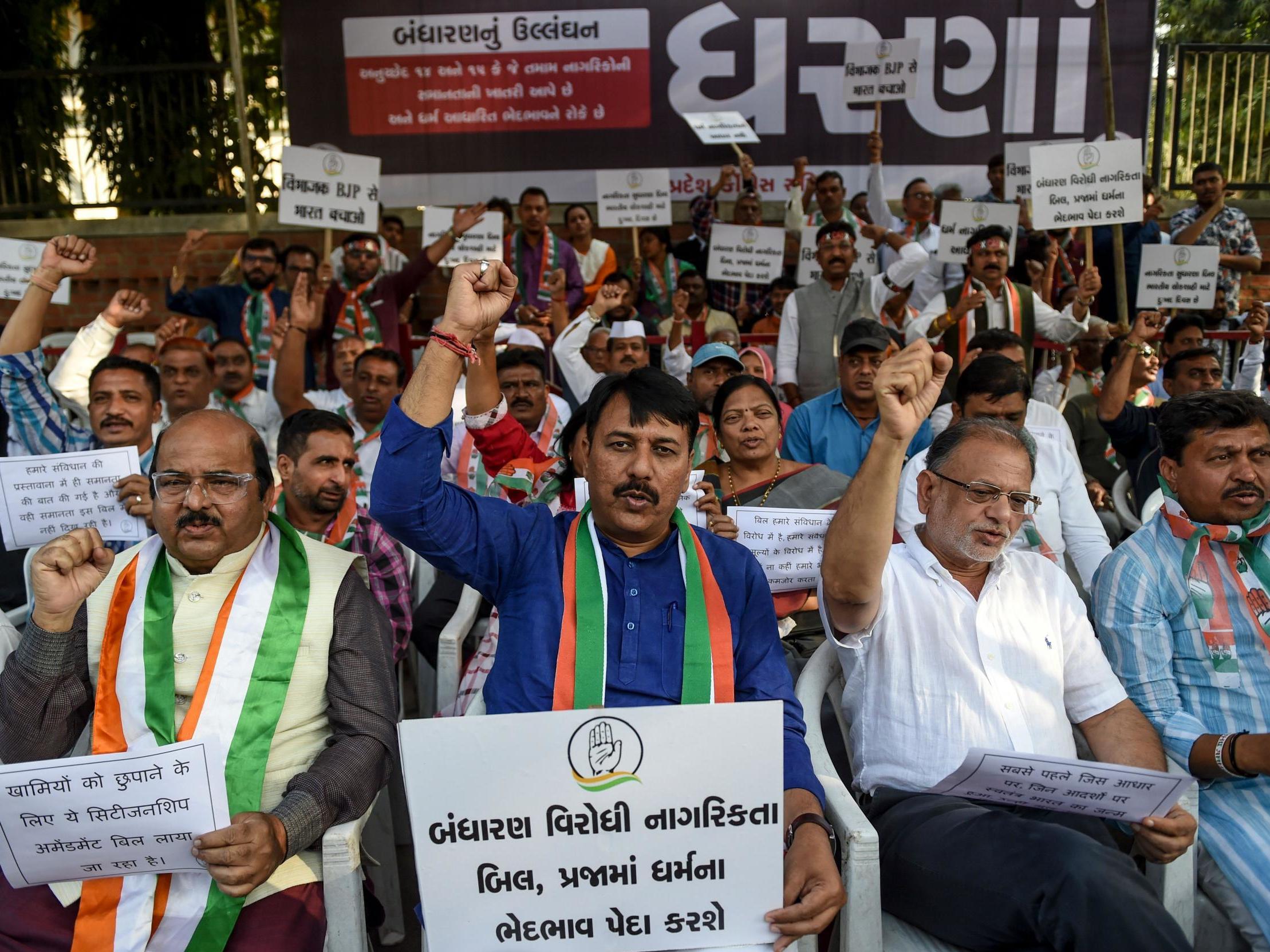India passes historic citizenship bill that excludes Muslims
Vote sparks days of violent protests in Assam, with critics claiming law fits with PM’s Hindu nationalist agenda

India’s ruling Hindu nationalist government has won parliamentary approval for a controversial law that would make it easier for refugees of certain faiths from neighbouring countries to gain citizenship, but not Muslims.
The Citizenship Amendment Bill seeks to grant Indian nationality to Buddhists, Christians, Hindus, Jains, Parsis and Sikhs who fled Afghanistan, Bangladesh and Pakistan before 2015.
Critics say the law undermines the country’s secular constitution. The opposition party has described it as driven by “bigotry and narrow-minded exclusion” and it has been condemned by rights activists and Islamic groups, sparking violent protests.
The bill passed the upper house of India’s parliament with 125 members supporting it and 105 opposing on Wednesday, a day after clearing the lower house. It now awaits presidential assent, a formality before becoming law.
The decision came after two days of violent protests in Assam state’s Dibrugarh district , during which police fired rubber bullets, tear gas and used batons against demonstrators, who lit fires and blocked highways and railway lines.
A curfew was imposed in Gauhati, the state capital, and army soldiers were standing by in case the violence escalated, state police official Mukesh Aggarwal said, while the Press Trust of India said the federal government was airlifting nearly 5,000 paramilitary soldiers to the region.
Protesters say they oppose the legislation out of concern that migrants who came to the country illegally will move to the border region in the northeast and dilute the culture and political sway of indigenous tribal people.
Introducing the bill in the upper house on Wednesday, home minister Amit Shah insisted the bill was not anti-Muslim because it did not affect the existing path to citizenship available to all communities.
It seeks to address the difficulties of Hindus and other minorities who suffered persecution in Muslim-majority Pakistan, Bangladesh and Afghanistan, Mr Shah said.
His justification was echoed by prime minister Narendra Modi, who defended the bill as “in line with India’s centuries-old ethos of assimilation and belief in humanitarian values”.
Critics say the bill fits into Mr Modi’s Hindu nationalist agenda, and have been joined in their criticism by the US government’s commission for international religious freedom (CIRF).
The CIRF criticised the bill as going against “India’s rich history of secular pluralism and the Indian Constitution,” and pledged to seek US sanctions against Mr Shah if it passed through parliament.
The US commission’s statement “is neither accurate nor warranted”, a spokesperson for India’s External Affairs Ministry said.
“Such an initiative should be welcomed, not criticised, by those who are genuinely committed to religious freedom,” he asserted.
Additional reporting by agencies
Join our commenting forum
Join thought-provoking conversations, follow other Independent readers and see their replies
Comments
Bookmark popover
Removed from bookmarks